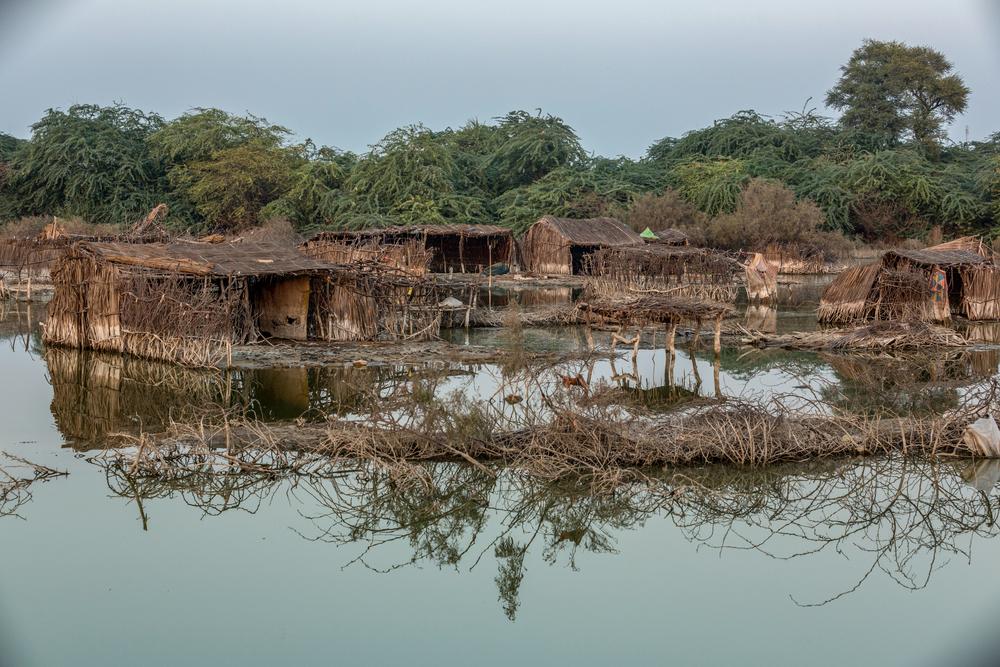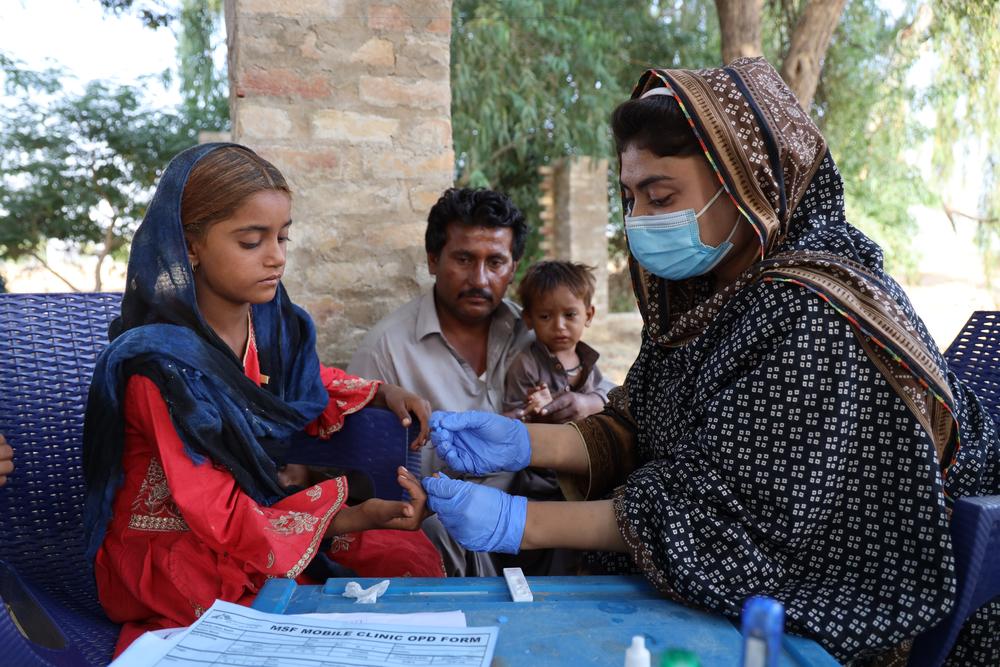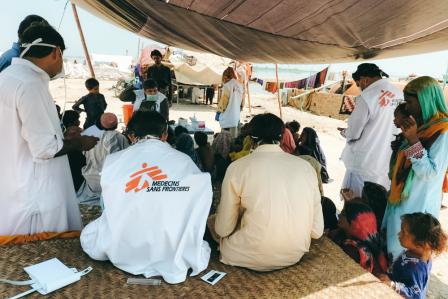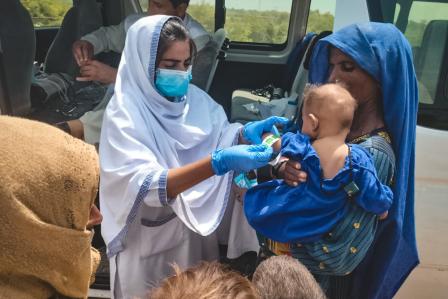Pakistan: Flood emergency is far from over

A view of huts submerged in rainwater at a village near Khipro, Sanghar, Sindh province. Pakistan, November 2022. © Asim Hafeez for MSF
Catastrophic flooding began in June, and the situation remains an emergency, with critical humanitarian needs. The current response is inadequate. The basic needs of people living in the worst flood affected areas such as access to essential food assistance, healthcare and safe drinking water, remain unmet.
Doctors Without Borders emergency response in Sindh and eastern Balochistan
In Sindh and eastern Balochistan, Doctors Without Borders teams are seeing high numbers of people needing treatment for malaria. Despite the colder season, when malaria rates would be expected to decline, we continue to see malaria positivity rates of 50% during December in patients screened in our mobile medical clinics and have treated more than 42,000 patients since October.
The floods have destroyed extensive areas of crops and livestock, which represent the main source of livelihood for many communities. In our mobile medical clinics in northern Sindh and eastern Balochistan Doctors Without Borders are already seeing alarming numbers of acute malnutrition. Since the start of our activities in these regions, we have screened a total of 28,313 children for malnutrition in our mobile medical clinics. Of those screened, 23% (6,489) had severe acute malnutrition and 31% (8,738) had moderate acute malnutrition, comprising more than half of the children who arrived at our clinics.
“We are still in an emergency phase”
"We are months into this response and our teams in Sindh and eastern Balochistan still see people living in tents and makeshift shelters. In these winter months, people are becoming more vulnerable. While the focus is shifting towards recovery and reconstruction, a scaled-up humanitarian response to meet people’s immediate needs is absent. In December our medical teams continued to see high rates of malaria, acute malnutrition, and skin infections. Humanitarian organisations and government agencies involved in the response must not forget that the situation remains critical,” says Edward Taylor, Doctors Without Borders' Emergency Coordinator in northern Sindh and eastern Balochistan.
In the areas where we are working, water has yet to recede, and the emergency medical and humanitarian needs remain high. People urgently need access to food assistance, safe drinking water, healthcare and shelter. We are still very much in an emergency phase.Edward Taylor, Emergency Coordinator
Doctors Without Borders emergency teams are running mobile clinics and malaria teams that visit more than 50 locations per week in the Dadu, Jacobabad, and Shahadat Kot districts of Sindh and Jaffarabad, Naseerabad, Sohbatpur, Jhal Magsi, and Usta Mohammed districts in eastern Balochistan. So far, we have provided basic medical care to more than 92,000 people, mainly for skin diseases, malaria, respiratory tract infections, and diarrhoea.
Returning to destroyed homes and contaminated water sources
Those returning to their villages are finding destroyed houses and land, still surrounded by stagnant water. The devastating loss of homes and belongings impacts people’s mental health, as well as their livelihoods. Doctors Without Borders teams are providing psychological first aid and group counselling sessions to support people during this extremely difficult time.
Meanwhile, those remaining in camps and informal shelters are faced with the encroaching threat of winter. Doctors Without Borders continues to tailor its distribution of non-food items for the season with additional blankets for winter; in the past two weeks, 6,000 households have received these relief packages.

Doctors Without Borders' nurse is conducting a rapid malaria test of his eldest daughter. Our mobile clinic teams have treated more than 9,500 patients in Eastern Balochistan.
In Sindh and eastern Balochistan, many people whose villages are now accessible found that water sources are still contaminated and they must get drinking water from far away. Crops and food stores have been destroyed, livestock have died, and fields will not be ready for the next planting season, increasing the risk of further food insecurity. Doctors Without Borders teams are continuing to provide safe drinking water to rural communities, with more than 20 million litres provided so far. The teams have also helped to distribute 15,973 hygiene kits to families of remote flood-affected areas.
"Ensuring adequate food, water, sanitation, health care and shelter must be a priority for the international and national response to the catastrophic flooding in Pakistan," continues Taylor, "many people in affected areas have immediate, urgent needs that cannot wait."

